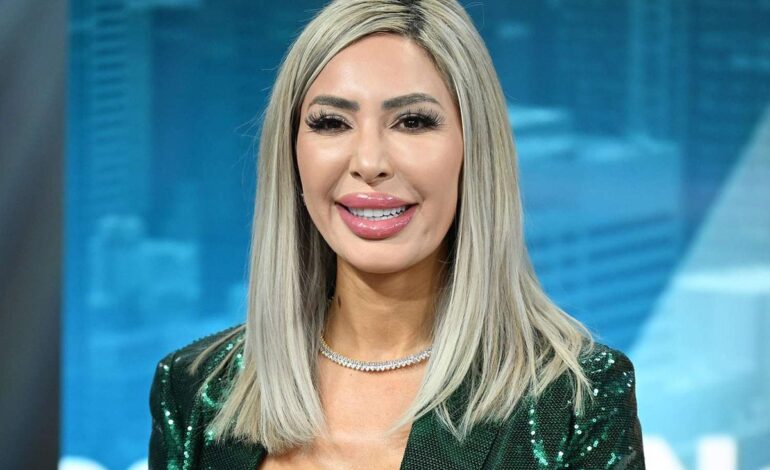Farrah Abraham Opens Up on Talking Sex and Safety with Sophia: A Hard-Earned Lesson in Love and Boundaries

Farrah’s central thesis is simple in its gravity: experience is a teacher best used when paired with openness. “I think my own life was sex ed class, to be honest with you,” she tells E! News, painting a picture of a teenager who learned through trial rather than textbook pages. The confession doubles as a manifesto for transparency. Farrah argues that presenting her life openly helps Sophia understand not just the mechanics of sex, but the broader implications—the emotional, physical, and practical consequences that come with intimate decisions. The aim is to give Sophia a contrast so she can discern what she wants and why she wants it, a lesson delivered with a directness many parents reserve for the classroom rather than the kitchen table.
The method is hands-on and practical. Farrah mentions taking Sophia to a drugstore to discuss “the good and the bad things and the products” surrounding sexual health. It’s a scene that reads almost ritualistic in its normalcy—a mother and daughter learning together in the real world, away from screens and rumors. Farrah’s account also reflects a lifetime of not having reliable guidance herself. She recalls a lack of parental steering during her own teenage years, describing her inability to rely on Debra Danielsen or Michael Abraham for guidance and the long road she walked through gynecological care to learn what she needed. This past becomes a driving force behind her current mission: to be present, to teach, and to shield Sophia from the kind of harm she traversed alone.
The conversation also threads in Farrah’s professional and personal evolution. Her past experiences with fame and vulnerability—especially around her 2013 sex tape and its aftermath—serve as cautionary tales she does not weaponize but reframes as lessons about self-worth and boundaries. Therapy remains a steady companion, a beacon she says helps her choose better friends and better company for her daughter. The overarching message is pragmatic and protective: by maintaining open lines of communication, Farrah believes Sophia will be equipped to spot red flags, to evaluate people around her, and to protect her reputation and future.
Beyond the talk of sex, the piece sketches a broader kitchen-table philosophy: transparency plus professional support creates a safety net. Farrah wants the people in Sophia’s orbit to uplift rather than derail her ambitions, to prevent the kinds of harm that once marred her own adolescence. It is a narrative of growth through honesty, with therapy as a stabilizing force that helps her build a healthier social circle for both of them.
What remains most arresting is the sense that Farrah’s parenting is both a shield and a signal flare—a deliberate stance in a world hungry for scandal, a vow to guide her daughter with both candor and care. The interview leaves us with a question that lingers like the echo of a chorus: in an era of constant visibility, how do you guard a teenager’s future while letting them grow into their own truth? What kind of conversations will Sophia choose to carry forward when she steps into the wider world? The answer, for now, might be found in the simple act of going to CVS together, buying the right products, and choosing the right people to have around you.
And so the tale threads on, a chorus of parenting born from pain, transformed into protection, and whispered into the ears of a teenager who still holds the key to becoming who she wants to be. What comes next will test how these conversations mature as Sophia navigates the next chapters of adolescence and independence, and whether Farrah’s open dialogue can weather the evolving storms of fame, privacy, and teenage life.
Sources: Celebrity Storm and E! News; Entertainment Weekly; People Magazine
Attribution: Creative Commons Licensed (GO)
Attribution: Creative Commons Licensed (GO)




